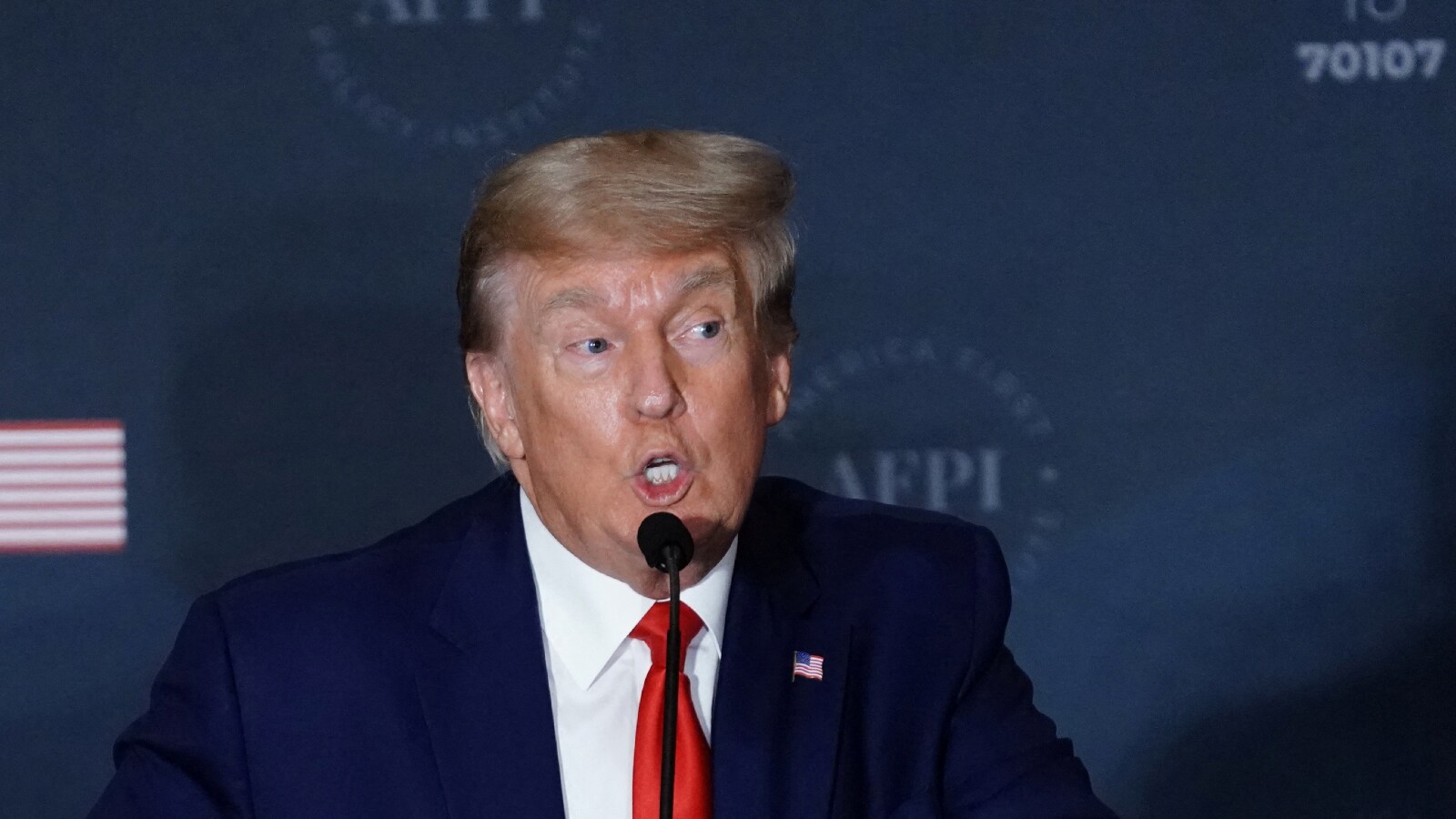Georgia Criminal Probe Poses Greatest Threat to Donald Trump
Prime-time congressional hearings and an unprecedented FBI raid on his home have ramped up legal pressures on Donald Trump, but analysts say a slow-moving, lower key investigation in Georgia could be the case that finally brings him down.
Scrutiny of the former president’s effort to overturn the 2020 election in the state he lost to Joe Biden by fewer than 12,000 votes is intensifying as he eyes a third run for the White House in 2024.
The 76-year-old former reality TV star immediately cried foul after becoming the first Republican presidential candidate to lose Georgia in almost three decades.
But after three presidential ballot counts and the failure of numerous lawsuits, no evidence of significant voter fraud surfaced in the critical swing state.
Trump nevertheless meddled repeatedly in Georgia politics, pushing for secretary of state Brad Raffensperger in a now-infamous taped phone call to “find” enough votes to overturn Biden’s victory.
A group of Brookings Institution legal experts wrote in October last year that Trump’s post-election conduct in the state “leaves him at substantial risk of possible state charges predicated on multiple crimes.”
In May, Fulton County’s top prosecutor Fani Willis assembled a special grand jury to investigate attempts by Trump and his allies to overturn Georgia’s election results.
‘Legal exposure’
A potentially year-long process, the probe could end in Trump facing a raft of solicitation and conspiracy charges connected to election fraud and interference, according to legal experts.
The former president — who denies all wrongdoing — could also face prosecution under Georgia’s Racketeer Influenced and Corrupt Organizations (RICO) statute, which is usually used to nail down mob figures.
Willis has already amassed significant testimony from Trump’s inner circle, including his former personal lawyer Rudy Giuliani, who has been informed he is the target of criminal investigators.
Georgia Governor Brian Kemp — whom Trump berated repeatedly for certifying the 2020 election results, his duty under the law — was ordered by a judge Monday to testify after November’s midterm elections.
Raffensperger and Georgia attorney general Chris Carr, who was also pushed by Trump to contest the state’s vote count, have already appeared before the grand jury.
Meanwhile Trump’s ex-White House chief of staff Mark Meadows is fighting his own summons, as is the former president’s Senate ally Lindsey Graham, who denies accusations that he improperly suggested that Georgia toss out lawful mail-in ballots.
“Willis seeking testimony from additional Donald Trump allies, including Mark Meadows, is a sign of how serious this investigation is — and how concerned Trump should be about his own legal exposure,” Noah Bookbinder, president of Citizens for Responsibility and Ethics in Washington, posted on Twitter on Friday.
Former assistant US attorney Kevin O’Brien, a seasoned trial lawyer specializing in white-collar criminal defense, cautioned that a high-profile witness list does not necessarily equate to a nailed-on prosecution.
‘Big freaking deal’
State prosecutors generally have less expertise for white-collar investigations than the federal justice department, O’Brien told AFP, advocating for a “wait-and-see attitude” to the potential for charges.
“(The) proof will be in the pudding,” he added. “Trump has thus far escaped all accountability for his actions, whether in Georgia or elsewhere.”
Other experts say, however, that the Georgia investigation differs from the federal probes in key ways that may make prosecution more likely than an indictment from the federal justice department.
David French, a former attorney turned conservative commentator, believes Trump faces criminal exposure over the 2021 insurrection, but has long held the view that Trump’s primary risk was in Georgia.
“You can take some criminal statutes — both Georgia and federal — and just pretty much match it up with his conduct,” he said on a recent episode of current affairs podcast The Fifth Column.
“Let me put it this way: if he was a small-town sheriff, and he had called a local county election commissioner and said, ‘I need 50 more votes or, you know, you might find yourself arrested,’ he’d probably already be indicted.
“But he’s the former president of the United States. That’s a big, big freaking deal to indict him. And I don’t know if that will happen, but Georgia to me has always been a greater risk for him.”
Read the Latest News and Breaking News here
For all the latest world News Click Here

